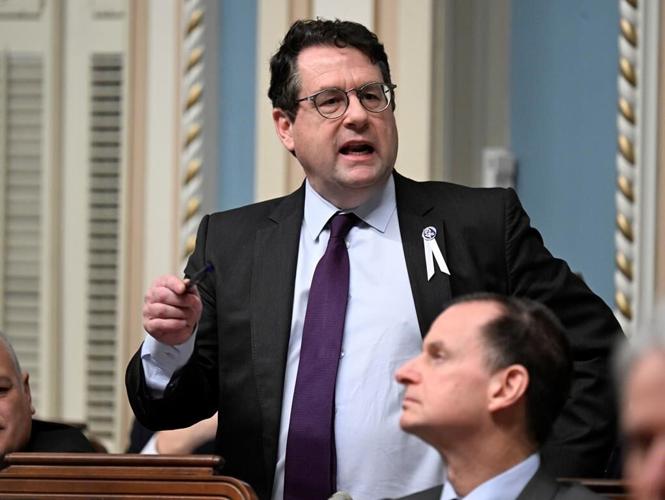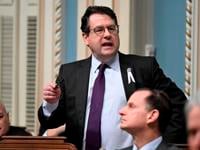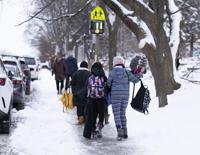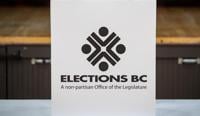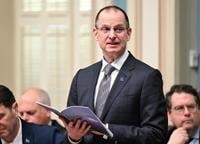MONTREAL - As children ran up a snow-covered hill toward a Montreal elementary school Tuesday morning, few looked back to their parents on the sidewalk, who exchanged greetings with one another for the first time in nearly seven weeks.
Parents said they are happy that school has resumed after teachers walked off the job on Nov. 23, but some have concerns about how their children will catch up on all the missed lessons and whether teachers will ultimately accept the deal that ended the strike.
"We had a good time, actually, we managed to make it work," said Stephanie Earp as she dropped off her seven-year-old daughter, Veronica, at ûcole Notre-Dame-de-GrûÂce. The class cancellations that came with the COVID-19 pandemic prepared parents on how to keep their kids busy at home, she said, adding, "We're all really excited to be back to a regular routine."
Veronica said she was looking forward to math class and to seeing the teachers and friends she missed during the extended break.
ûcole Notre-Dame-de-GrûÂce is one of around 800 public schools that were closed after members of a union representing around 40 per cent of the province's public school teachers went on unlimited strike at the end of November. Hundreds of thousands of other public school students, however, missed fewer than two weeks of classes because their teachers were members of a labour alliance that launched 11 days of strikes. Private school students, meanwhile, missed no school at all.
Lucie Chrûˋtien dropped off her nine-year-old son at ûcole Notre-Dame-de-GrûÂce and said she wasn't worried about all the time off because she expects teachers to do everything they can to make sure students don't fall behind.
"I'm super happy, my child is supper happy, he's really looking forward to it, because it was a long time, we did what we could for homework, but he got bored," Chrûˋtien said.
Other parents outside the school said they would be closely watching the province's plan to help students catch up.
Later that morning, Education Minister Bernard Drainville presented a $300-million funding package to, among other things, pay teachers, retired teachers and students in university education programs to hold extracurricular tutoring sessions. He said it will be up to individual schools to choose how best to spend the money ã and up to teachers to decide whether they want to tutor on their time off.
"The needs are different from one school to another, from one service centre to another," Drainville told reporters in Montreal. Additional help will also be available for students who have special needs, he said. Departmental exams scheduled for this spring could be delayed by between two and seven days, he said, but won't be delayed past June 23.
Earlier on Tuesday, Jennifer Zimmerman, who has three daughters, aged 11, nine and six, said she and her kids were a little worried about missing so much school. She said she hoped the province's plan wouldn't cut into students' and teachers' vacations.
"I sincerely hope that all that the teachers and students have gone through over the past five weeks is worth it, and so I hope that today's plan addresses all the needs of our teachers, our students and our resource workers," she said.
Ibrahim Diop, who dropped off his daughter at ûcole Notre-Dame-de-GrûÂce, said he didn't want Drainville's plan to extend school into the summer, and wasn't sure whether teachers would accept the deal in principle with the government.
"I believe that this might start again, but we will see," he said.
The agreements in principle still need to be approved by members during general assemblies, which are to begin this month.
The tentative nature of the agreement is a concern for Zimmerman as well.
"We're all so happy to be back to class, but there's still so much uncertainty, we don't actually know what the details of the agreement were, so I think we're all trusting in our government that they've reached a fair resolution," she said.
This report by üСÜꪤüýò¿Øéóæòêü was first published Jan. 9, 2024.

